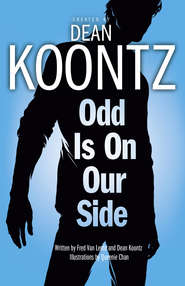По всем вопросам обращайтесь на: info@litportal.ru
(©) 2003-2025.
✖
The Face
Автор
Год написания книги
2019
Настройки чтения
Размер шрифта
Высота строк
Поля
“Anybody winds up broken on the rocks, it’ll be you.”
“You’ve just taken the cliff metaphor one step too far,” said Hazard, spooning hummus into a pita wedge.
After a half-century of squeaky-clean public officials and honest administration, California itself had lately become a deep sewage slough not seen since the 1930s and ’40s when Raymond Chandler had written about its dark side. Here in the early years of the new millennium, on a state level and in too many local jurisdictions, corruption had attained a degree of rot seldom seen outside a banana republic, though in this case a banana republic without bananas and with pretensions to glamour.
A significant percentage of the politicians here operated like thugs. If the thugs saw you going after one of their own, they would assume you’d come after them next, and they would use their power to ruin you one way or another.
In another gangster-ridden era, in a crusade against corruption, Eliot Ness had led a force of law-enforcement agents so beyond reach by bribery and so undeterred by bullets that they became known as the Untouchables. In contemporary California, even Ness and his exemplary crew would be destroyed not by bribes or bullets, but by bureaucracy wielded as ruthlessly as an ax and by slander eagerly converted to libel by a feeding-frenzy media with a sentimental affection for the thugs, both the elected and unelected varieties, upon whom they daily reported.
“If you were still doing real work like me,” Hazard said, “you’d handle this no different than I’m handling it.”
“Yeah. But I sure wouldn’t sit there grinning about it.”
Indicating Ethan’s sweater, Hazard said, “Cotton—like Rodeo Drive cotton?”
“Cotton like Macy’s on-sale cotton.”
“How much you pay for a pair of socks these days?”
Ethan said, “Ten thousand dollars.”
He’d been hesitant to bring up the Rolf Reynerd situation. Now he figured he could do nothing better for Hazard than distract him from this suicidal mission to nail a city councilman for murder.
“Take a look at these.” He opened a nine-by-twelve manila envelope, withdrew the contents, and passed them across the table.
As Hazard reviewed what he’d been given, Ethan told him about the five black boxes delivered by Federal Express and the sixth thrown over the gate.
“They came by Federal Express, so you know who sent them.”
“No. The return addresses were fake. They were dropped off at different mom-and-pop mailbox shops that collect for FedEx and UPS. The sender paid cash.”
“How much mail does Channing get a week?”
“Maybe five thousand pieces. But almost all of it is sent to the studio where it’s known he has offices. A publicity firm reviews it and responds. His home address isn’t a secret, but it’s not widely known, either.”
In the envelope were high-resolution computer printouts of six digital photographs taken in Ethan’s study, the first of which showed a small jar standing on a white cloth. Beside the jar lay the lid. Spread across the cloth were what had been the contents of the jar: twenty-two beetles with black-spotted orange shells.
“Ladybugs?” Hazard asked.
“The entomological name is Hippodamia convergens, of the family Coccinellidae. Not that I think it matters, but I looked it up.”
Hazard’s shrewd expression spoke clearly enough without words, but he said, “You’re stumped worse than a quadruple amputee.”
“This guy thinks I’m Batman, he’s the Riddler.”
“Why twenty-two bugs? Is the number significant?”
“I don’t know.”
“They alive when you received them?” Hazard asked.
“All dead. Whether they were alive when he sent them, I don’t know, but they looked like they’d been dead for a while. The shells were intact, but the more delicate bug parts were withered, crumbly.”
In the second photo, a collection of different, spirally coiled, light brown shells were canted at angles in a gray pile of sludge that had been emptied from a black box onto a sheet of waxed paper.
“Ten dead snails,” Ethan said. “Well, actually, two were alive but feeble when I opened the box.”
“That’s a fragrance Chanel won’t be bottling.”
Hazard paused to fork up some seafood tagine.
The third photo was of a small, clear-glass, screwtop jar. The label had been removed, but the lid indicated that the container had once held pickle relish.
Because the photograph wasn’t clear enough to reveal the murky contents of the jar, Ethan said, “Floating in formaldehyde were these ten pieces of translucent tissue with a pale pinkish tint. Tubelike structures. Hard to describe. Like tiny exotic jellyfish.”
“You took ’em to a lab?”
“Yeah. When they gave me the analysis, they also gave me a weird look. What I had in the jar were foreskins.”
Hazard’s jaws locked in midchew, as if the seafood tagine had hardened like a dental mold.
“Ten foreskins from grown men, not infants,” Ethan amplified.
After chewing mechanically, not with his former relish, and after swallowing with a grimace, Hazard said, “Ouch. How many grown men get themselves circumcised?”
“They’re not standing in line for it,” Ethan agreed.
CHAPTER 9 (#u822957d1-7db0-5eb9-b0ad-9212eb59d834)
CORKY LAPUTA THRIVED IN THE RAIN.
He wore a long shiny yellow slicker and a droopy yellow rain hat. He was as bright as a dandelion.
The slicker had many inside pockets, deep and weatherproof.
In his tall black rubber boots, two layers of socks kept his feet pleasantly warm.
He yearned for thunder.
He ached for lightning.
Storms in southern California, usually lacking crash and flash, were too quiet for his taste.
He liked the wind, however. Hissing, hooting, a champion of disorder, it lent a sting to the rain and promised chaos.
Ficus and pine trees shivered, shuddered. Palm fronds clicked and clattered.
Stripped leaves whirled in ragged green conjurations, short-lived demons that blew down into gutters.











